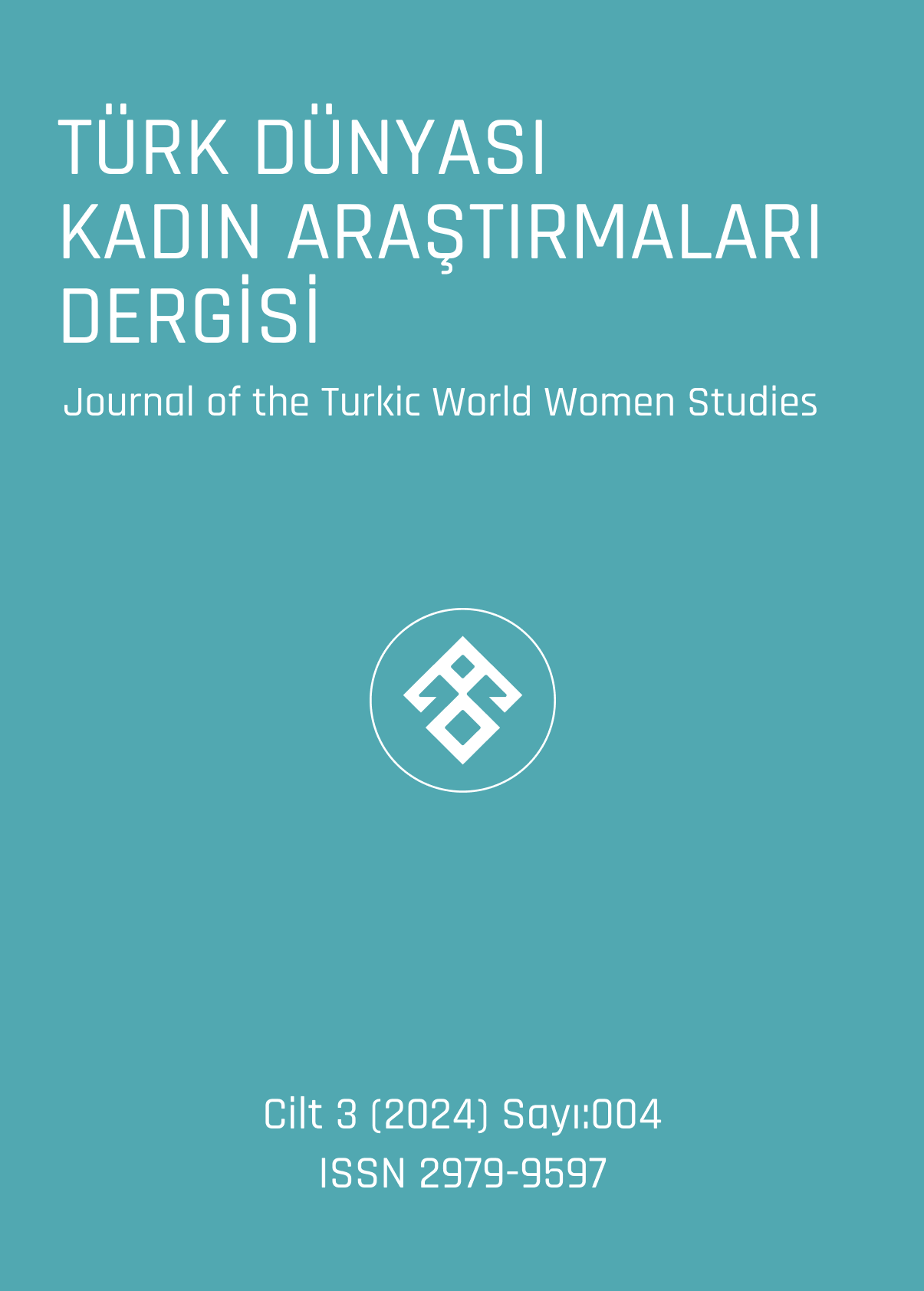Factors Affectıng Women's Marrıage Decısıons In Ottoman Socıety (Early 17th Century to Late 18th Century)
DOI:
https://doi.org/10.5281/zenodo.10850781%20Abstract
Marriage is a union established to last a lifetime unless there are conradictory circumstances. However couples may be exposed to many influences on the way to achieving this union. The legal kings, culture and mentality of the society in which we live affect the behavior and attitudes of the person. Thererfore, individuals who want to choose a spouse or start a family exhibit attitudes according to factors that affect them. These factors may vary depending on time, place and person. In this study, the answer to the question of what factors affected women’s marriage decisions in the 17th and 18th centuries in the Ottoman Empire will be sought. After these effects are identified, their basis will be tried to be determined.The conditions under which women made their marriage decisions in Ottoman society is an extremely important issue in terms of understanding their position in society.The marriage decision is the most special area in which men and Women should have the right to choose. Even though this is the case, women may be exposed to some factors in their marriage decision. For this reason, it was aimed to determine the factors in question by analyzing this issue through examples from various regions of the Ottoman Empire. The aim is to shed light on the issue of whether women decided to marry of their own will in the Ottoman Empire in line with the examples identified. The primary issue that is emphasized here is whether or not women’s rights are respected in which cases. Thus, by evaluating Ottoman women from different perspectives, different sections of their lives will be presented, which may conribute to beter understanding of Ottoman women.
References
ARŞİV KAYNAKLARI
Gaziantep Şer’îyye Sicil Defteri No. 53, 56, 59, 66, 69, 73, 75, 78, 79, 82, 90, 103, 123, 127.
ARAŞTIRMA KAYNAKLAR
Akyüz, Vecdi (1989). “Akraba”, Türkiye Diyanet Vakfı İslâm Ansiklopedisi, 2/285-287. TDV Yayınları, İstanbul.
Atar, Fahrettin (2007). “Nikâh”, Türkiye Diyanet Vakfı İslâm Ansiklopedisi, 33/112-117. TDV Yayınları, İstanbul.
Aydın, M. Âkif (1989). “Aile”, Türkiye Diyanet Vakfı İslâm Ansiklopedisi, 2/196-200. TDV Yayınları, İstanbul.
Aydın, M. Âkif (2018). Osmanlı Aile Hukuku, Klasik Yayınları, İstanbul
Bardakoğlu, Ali (1992). “Buluğ”, Türkiye Diyanet Vakfı İslâm Ansiklopedisi. 6/413-414. TDV Yayınları, İstanbul.
Bilmen, Ömer Nasuhi (1988). Hukukı İslâmiyye ve Istılahat-ı Fıkhiyye Kamusı I, II, V, VI. Bilmen Yayınevi, İstanbul.
Budak, Ö.M. (2022). Osmanlı Mahkemelerine Yansıyan Kadın Boşanma Davaları. Kahramanmaraş Sütçü İmam Üniversitesi Sosyal Bilimler Dergisi, 19(3): 1412-1428.
Cin, Halil (1974). İslâm ve Osmanlı Hukukunda Evlenme. Ankara Üniversitesi Basımevi, Ankara
Cin, Halil-Akgündüz, Ahmed (2017). Türk Hukuk Tarihi. Osmanlı Araştırmaları Vakfı, İstanbul.
Donuk, Abdulkadir (1982). “Çeşitli Topluluklarda ve Eski Türklerde Aile”. İstanbul Üniversitesi Edebiyat Fakültesi Tarih Dergisi 33 :147-168.
Dönmez, İbrahim Kafî (2011). “Temyiz”. Türkiye Diyanet Vakfı İslâm Ansiklopedisi. 40/437-439, TDV Yayınları, İstanbul.
Ekinci, Ekrem Buğra (2021). Osmanlı Hukuku, Arı Sanat Yayınevi, İstanbul.
Güleç, Hasan (2010). “Şigâr”. Türkiye Diyanet Vakfı İslâm Ansiklopedisi. 39/142-143. TDV Yayınları, İstanbul.
Güvenç, Bozkurt (1993). “Geleneklerden Kalıntılar: Başlık, Berdel, Kız Kaçırma, Kuma ve Amca-Kızı Evliliği”. Kadın Araştırmaları Dergisi 1:43-48.
Karaman, Hayreddin (2019). Ana Hatlarıyla İslâm Hukuku/2 . Ensar Yayınları, İstanbul.
Karaman, Hayreddin (1989). İslâm Hukuk Tarihi. Nesil Yayınları, İstanbul.
Ögel, Bahaeddin (1981). Büyük Hun İmparatorluğu Tarihi 1. Kültür Bakanlığı Yayınları, Ankara.
Ögel, Bahaeddin (2020). Dünden Bugüne Türk Kültürünün Gelişme Çağları. Türk Dünyası Araştırma Vakfı Yayınları, İstanbul.
Öğüt, Salim (2003). “Mahrem”. Türkiye Diyanet Vakfı İslâm Ansiklopedisi. 27/388-389. TDV Yayınları, Ankara.
Savaş, Saim (1992). “Fetva ve Şer’yye Sicillerine Göre Ailenin Teşekkülü ve Dağılması”. Sosyo-Kültürel Değişme Sürecinde Türk Ailesi 2. 504-547. T.C. Başbakanlık Aile Araştırma Kurumu Yayınları, Ankara.
Söylemez, Faruk (2018). “Anadolu’daki Konar Göçer Aşiretlerde Orta Asya Türk İzleri”, Osmanlı Araştırmaları-2 Doğu ve Batı Türklüğünün Ortak Tarihî Devirleri ve Münasebetleri. ed. Alaatin Aköz vd. 225-238. Palet Yayınları, Konya.
Yıldırım, Mehmet Zahit (2015). “Osmanlı Kültüründe Kızların Erken Nikahlandırılması Meselesi: Darende’den Bir Örnek”, I. Uluslar arası Türk Kültürü Araştırmaları Sempozyumu Bildirileri, ed. Hüseyin Gönel, 279-289, Nevşehir Hacı Bektaş Veli Üniversitesi Yayınları, Nevşehir.
Downloads
Published
How to Cite
Issue
Section
License
Copyright (c) 2024 Journal of the Turkic World Women Studies

This work is licensed under a Creative Commons Attribution 4.0 International License.



